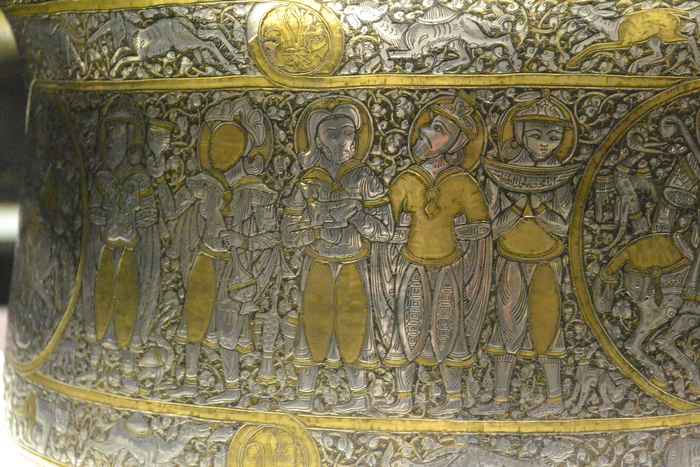Ethnicity in the Medieval Middle East
26 September 2024

‘During my study, I became extremely interested in the concept of looking at the other. You often see that this goes hand in hand with prejudices that can have major political and human impacts’, says Van den Bent. ‘I came across all kinds of descriptions of other peoples in historical travel literature, some of which were quite absurd, as a result of which I asked myself how these opinions about the other came into being and which consequences this has.’
In her research, Van den Bent primarily focuses on the Middle East. For her thesis, she researched the representation of the Mongols in the Mamluk sultanate of Egypt and Syria. The Mamluks were originally enslaved soldiers who mainly came from the Eurasian Steppe. Over the course of time, they developed into an influential military group and halfway through the 13th century, they even became the rulers over Egypt and Syria, and the Hejaz.
‘The Mamluks were regularly in conflict with the Mongols. For me, as a researcher of ethnicity, that is very interesting, because on the one hand the Mongols were the enemy of the Mamluks, but on the other hand they were viewed as being ethnically related by contemporaries, among other reasons because they came from the same region. In terms of perception of ‘the enemy’, therefore, that was complicated.’

I hope to find out how authors from that time construed ethnic identity, what kind of impacts this had in society and at which moments this was the case.Josephine van den Bent
Weather conditions
With Ethnicity in the Medieval Middle East, Van den Bent is opting for a broader approach, in which she will research how ethnic identity is viewed on an intellectual level in the Middle East, and how people dealt with ethnical differences in practice. She will make use of a number of different case studies for this. She will research, among other things, the contacts between different ethnic groups in Abbasidian Iraq (8th-10th century), Mamluk Egypt and Syria (13th-15th century), and Iran under the Mongols (13th-14th century).
‘I hope to find out how authors from that time construed ethnic identity, what kind of impacts this had in society and at which moments this was the case. The regions that I have chosen were extremely multi-ethnic with a constant migration flow. Sources show, in any case, that even then people were occupied with ethnicity and people’s origin.
As an example, Van den Bent describes a theory that medieval authors adopted from the Greeks. ‘They had the idea that climate had a major influence on people’s character, as they believed weather conditions would influence bodily fluids, thus affecting not only your appearance, but also how you are as a person Another example is the so-called jinsiyya, which I translate for convenience's sake as ‘ethnic solidarity’. In medieval sources, that term is sometimes used to describe how people feel solidarity with others who have a similar ethnic background .’
Complicated social relations
With her research, Van Den Bent hopes to reveal how these theories influenced practice in multi-ethnic societies. ‘At the time, you had numerous complicated social relations within households. You regularly saw enslaved young men of different origins who described each other as ‘brothers’. Ethnicity does not actually seem to play a role in that case. So, it is very much a question of when ethnic origin does play a role and which cultural characteristics people considered to be important as markers of ethnicity.'